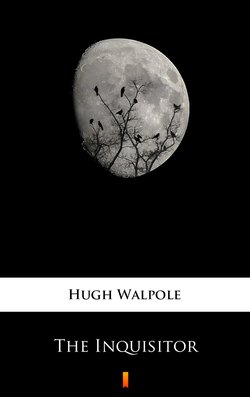Читать книгу The Inquisitor - Hugh Walpole - Страница 4
На сайте Литреса книга снята с продажи.
ОглавлениеPREFATORY LETTER
London, 1935
My dear Robert,
Whenever I have in the past written a dedicatory letter to a novel, I have been reproached by my friends who tell me that it is a very old-fashioned and otiose thing to do. Whether that be so or not, I see little harm in it, especially if one wishes, as I do in the present instance, to make a certain point clear.
First I would like to acknowledge with what extreme pleasure I dedicate this book to you; modesty forbids my mentioning in public the reasons of my gratitude to you. You well know what they are.
There is something, however, that I have been wanting for many years to say, and this is, I feel, a fair opportunity. The Inquisitor is the fourth of a series of stories about a cathedral town that I have called Polchester. The three that precede it are, The Cathedral, Harmer John and The Old Ladies. The fact that I have written these novels about a cathedral city has persuaded a number of critics, friendly and otherwise, that I have been attempting to rival that wonderful portrayer of Victorian life in a cathedral city–Anthony Trollope. I had, you scarcely need to be told, never any thought of such absurd rivalry. Had I the genius to create characters so masterfully actual as the Bishop, Mr. Slope and Mrs. Proudie, I would wear my hat at an angle and challenge with confidence all the present realists of the English novel. In truth, the aim of my four cathedral novels has been exactly opposite from that of the creator of Barchester, and their ancestor, if they have one, is the author of The Scarlet Letter and The House of the Seven Gables.
These four novels of mine are, of deliberate purpose, novels of event. There are in the course of them murders, suicides, abductions, riots–not that I would have Polchester supposed to be a town of violence, far otherwise, but there have been in its history, as in the history of all towns, moments of drama, even of melodrama. And these I have deliberately chosen as illustrations of my one continuous theme. In fact, I would hold my breath and declare most dangerously that I am not afraid of melodrama. I think that possibly the contemporary English novel is written too frequently in undertones. Many of the cleverer novelists in England at this present instant seem to myself to talk in whispers. I do not defend melodrama, nor do I think that these cathedral novels of mine are melodramatic, but their violences are deliberate and the scenes at the close of this present novel are true history.
With every good wish,
Yours, dear Robert,
HUGH WALPOLE
